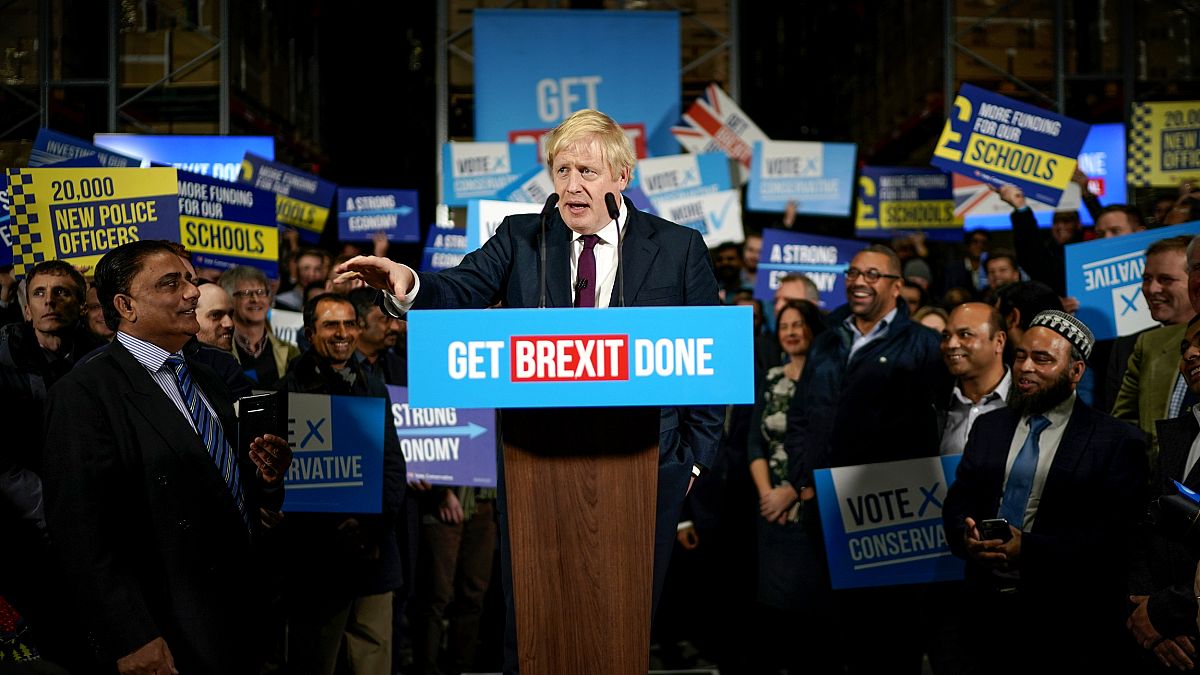If the poll reflects the final results, the United Kingdom is all but certain to finally leave the European Union on Jan. 31.
LONDON — Boris Johnson looked set Thursday to stay on as prime minister and win a huge majority in the British Parliament, according to an exit poll published as voting closed in what has been called the most important election in a generation.
Johnson's ruling Conservative Party was predicted to win 368 seats in the House of Commons, an increase on the 298 it held going into the election, according to a poll released just after 10 p.m. local time (5 p.m. ET) Thursday. There are 650 seats in the Commons and a party needs to have at least half to command a majority.
If the poll reflects the final results, the United Kingdom is all but certain to finally leave the European Union on Jan. 31,more than three and a half years after the Brexit referendum in 2016. A divided and deadlocked Parliament had previously blocked Johnson's withdrawal deal multiple times, prompting this election.
If he wins the commanding majority that the exit poll predicted, Johnson will visit Queen Elizabeth II to be invited to form the next government, a constitutional formality. Johnson is the 14th prime minister since the queen took the throne in 1952 — the first was Winston Churchill.
Johnson's Conservative bested the opposition Labour Party, which stood on a socialist platform to curb the power and influence of big business in favor of workers' rights and was predicted to win just 191 seats, way below the numbers needed to form a government outright.
Labour has for weeks been behind the Conservatives in opinion polls, while its leader Jeremy Corbyn has a more unfavorable personal rating than Johnson and is disliked in some traditional Labour heartlands.
The Liberal Democrats, the centrist pro-European party which promises to cancel Brexit if elected, is predicted to win 13 seats, far below what it may have hoped for as the loudest anti-Brexit voice in this election.
The Liberal Democrats went into the election with 21 members of Parliament, but several of these were politicians who had defected from Labour or the Conservatives in protest over Brexit and who had never previously stood for the party.
The threat to the main parties from the Brexit Party, formed by former U.K. Independence Party leader Nigel Farage as a populist pro-Brexit alternative to the Conservatives, appears to be over — the exit poll predicts it will win no seats.
Early in the campaign the Brexit Party was expected to challenge several seats that voted to leave the European Union in 2016. But Farage then pulled candidates out of all 298 Conservative-held seats, so that he wouldn't be seen to undermine the U.K.'s chances of leaving the E.U. in January, and the party's support duly plummeted.
The Scottish National Party, which wants Scotland to be an independent nation separate from the U.K., is predicted to win 55 seats, an improvement on the 35 it had going into the election. The SNP has been talked of as a possible coalition partner for Labour if the Conservatives fail to win a majority.
British broadcasters have been using exit polls since 1974 and while they returned some inaccurate results in the 1970s, 1980s and 1990s, they have been much more reliable in recent years, calling the 2005 and 2010 elections exactly right.
